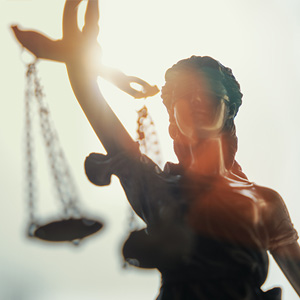Court Amends Rule 49 to Bring Clarity, Consistency on Unauthorized Practice of Law
July 07, 2022
The District of Columbia Court of Appeals issued Order No. M-277-21 on June 22, adopting amendments to Rule 49 on the unauthorized practice of law (UPL). The revised rule takes effect on August 22.
In addition to ensuring consistency and clarity in the rule’s language, the revisions introduced several substantive changes. For example, the new D.C. App. R. 49(c)(8) permits the practice of law in the District only after an application for admission has been submitted. Previously, an attorney admitted elsewhere could immediately begin practicing law in the District, provided they filed an application for admission to the D.C. Bar within 90 days.
Also, the revised rule loosens restrictions for pro bono practice, providing an exception to the requirement of admission to the D.C. Bar for lawyers formerly admitted in the District of Columbia or currently or formerly admitted in other U.S. jurisdictions. The new language in Rule 49(c)(9) eliminates the wording “enrolled inactive or enrolled retired member.”
The requirements for “supervision” of a pro hac vice attorney by local counsel have been revised, with “supervise” defined to mean “to make reasonable efforts to ensure that another person conforms to the applicable Rules of Professional Conduct.”
The revisions also address the issue of telecommuting. According to Rule 49(c)(13), a person who occasionally practices law from their residence in the District of Columbia — by telecommuting or working from home — or who practices temporarily from a hotel or short-term rental accommodation while on vacation in the District does not violate Rule 49, provided the person (1) maintains a law office in a jurisdiction where the attorney is admitted, (2) avoids using a D.C. address in any business document or otherwise holding themselves out as authorized to practice law in the District, and (3) does not regularly conduct in-person meetings with clients or third parties in the District.
“New Rule 49 should provide clarity, comfort, and guidance for Virginia and Maryland lawyers who happen to live in the District and sometimes telecommute from a home office,” says Charles Davant, partner at Williams & Connolly LLP. “Under the old rule, this could have been deemed a violation.”
Davant chairs the Court of Appeals’ Committee on Unauthorized Practice of Law, which completed a comprehensive review of Rule 49 and submitted its findings and recommendations to the court on December 5, 2021. “The District’s old UPL rule had evolved piecemeal over generations and, to my mind, presented a confusing and outdated patchwork,” says Davant, who led the revision effort. “It was internally inconsistent. It generated lots of questions from the public. It was hard to understand and apply. Our committee felt it was time for a comprehensive reevaluation.”
Accomplishing the task took considerable effort and care, considering the unique nature of the District as a jurisdiction and the way practice has changed since its creation. “We spent hundreds of hours over three years studying, researching, and debating what should be the ideal UPL rule for a city that also happens to be the seat of the federal government, and considering technological changes in how lawyers practice and what clients legitimately expect from the profession. We also listened to the public,” Davant says. “The new Rule 49 is the consensus product that emerged from those efforts.”
Former D.C. Bar president Geoffrey Klineberg, partner at Kellogg, Hansen, Todd, Figel & Frederick PLLC, served on the UPL Committee throughout its review of Rule 49. Providing insight into the change regarding timing of admission, Klineberg says the revised rule eliminates the possibility of lawyers coming to the District intending to apply for admission here, practicing under the exception for a period of time, but then changing their minds before ever submitting their application. In that circumstance, their once ostensibly lawful practice could be retroactively considered unauthorized.
The amended rule attempts to balance expediency with clarity, Klineberg says. “We want to make sure that lawyers, particularly at the beginning of their careers, are not stymied from being able to develop their practices as quickly as possible,” Klineberg says. “The old rule was somewhat confusing. The new version provides a clear incentive for attorneys to submit their D.C. Bar applications to the Committee on Admissions because now they will only be able to start practicing once their applications are in.”
In at least one instance, the Court of Appeals chose not to accept a change recommended by the committee. The committee had suggested a modification to D.C. App. R. 49(c)(6) governing in-house counsel in order to better reflect the common understanding of their role in providing not only “legal advice” to their employers but also “legal services” more broadly. The court determined that more study was warranted before adopting such a change, and the committee intends to consider the issue further.
Having completed its comprehensive revision of Rule 49, the committee will continue its primary mission of investigating complaints against persons engaging in the unauthorized practice of law. Resources, including opinions issued by the UPL Committee and contact information, can be found here.
The full text of the court’s order adopting the Rule 49 revisions, including clean and redline versions, can be found here.





